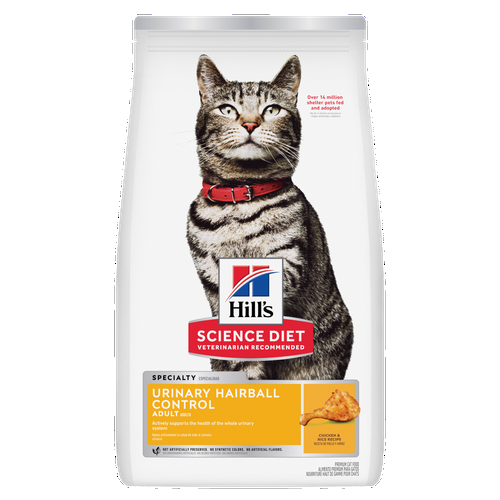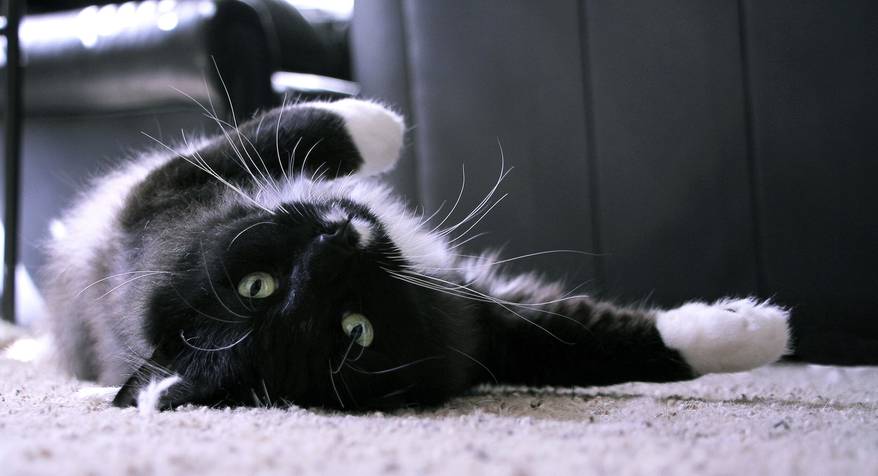
-
Find the right food for your petTake this quiz to see which food may be the best for your furry friend.Find the right food for your petTake this quiz to see which food may be the best for your furry friend.Featured products
 Adult 7+ Small & Mini Chicken & Brown Rice Recipe Dog Food
Adult 7+ Small & Mini Chicken & Brown Rice Recipe Dog FoodFor the unique nutritional needs of mature Small & Mini dogs
Shop Now Adult Small & Mini Lamb Meal & Brown Rice Recipe Dog Food
Adult Small & Mini Lamb Meal & Brown Rice Recipe Dog FoodFor the faster metabolism of Small & Mini dogs
Shop Now Hill's Science Diet Adult Oral Care Chicken, Brown Rice & Barley Recipe Dog Food
Hill's Science Diet Adult Oral Care Chicken, Brown Rice & Barley Recipe Dog FoodClinically proven kibble technology to reduce plaque & tartar build-up
Shop NowFeatured products Hill's Science Diet Adult Sensitive Stomach & Skin Dog Food
Hill's Science Diet Adult Sensitive Stomach & Skin Dog FoodHighly digestible recipe, gentle on stomachs. Nourishes skin & promotes a lustrous coat
Shop Now Adult Urinary Hairball Control Chicken & Rice Recipe Cat Food
Adult Urinary Hairball Control Chicken & Rice Recipe Cat FoodActively supports the health of the whole urinary system
Shop Now Adult Indoor Chicken Recipe Cat Food
Adult Indoor Chicken Recipe Cat FoodSupports energy level and beautiful fur in indoor cats
Shop Now -
Featured articles
 My Pet Ate a Lizard — What Should I Do?
My Pet Ate a Lizard — What Should I Do?Learn what to do if your pet eats a lizard, including whether they can be toxic and symptoms to keep an eye on when they've swallowed one.
Read More Easy DIY Dog & Cat Toys: Nine of Our Favorites
Easy DIY Dog & Cat Toys: Nine of Our FavoritesBrowse this comprehensive guide for several of our favorite DIY dog and cat toys that are sure to put a little pep in your pet's step.
Read More 15 Pet-Friendly Cities Ideal for a US Road Trip
15 Pet-Friendly Cities Ideal for a US Road TripCheck out our list of pet-friendly U.S. cities that are excellent travel options, offering off-leash dog parks and pet-friendly restaurants & hotels.
Read More -


Kidney problems are one of most common disorders veterinarians see in older cats. While no one knows the exact cause, researchers are hard at work trying to figure out what causes cat kidney health to fail in aging pets. Genetics, decreased thirst drive, undiagnosed chronic kidney infections, hyperthyroidism, dental disease and high blood pressure are all thought to contribute to chronic kidney problems in cats.
Even though cats can develop acute (sudden) kidney failure, kidney stones, cancer and infections in their kidneys, chronic kidney insufficiency is the most common condition seen in cats. If your cat is 7 years old or older, then it is important that you know the health of her kidneys.

Why Kidneys Are Important
When it comes down to it, kidneys are awesome, versatile, bean-shaped little organs. Kidneys filter the blood, creating urine to remove excessive levels of water, minerals, waste and toxins from the blood. Their filtration maintains proper electrolyte balance in the body.
Kidneys also make several types of hormones that benefit several systems in the body. These include hormones that regulate blood pressure, stimulate the bone marrow to make red blood cells and promote the absorption of calcium from the intestines. If a person or a cat develops kidney disease severe enough to decrease the kidneys' ability to function, the whole body suffers.
Signs of Kidney Disease in Cats
Cat kidney symptoms are classic, meaning all cats with decreased kidney function generally show the same signs. The earliest sign of kidney problems in cats is increased thirst and urination. Damaged kidneys are not able to process water, and so the cat pees more, which makes her thirsty, so she drinks more, and then pees more ... and so on and so forth. Keep track of how often your cat goes to the litter box on an average day so you can spot a problem quickly if one arises.
Another classic sign of kidney disease is weight loss and decreased appetite. The reason for this is that ailing kidneys lose the ability to filter toxins from the blood, and this makes the cat feel sick and nauseated. Other classic cat kidney signs include:
- Vomiting
- Decreased grooming
- Increased blood pressure
- Painful mouth ulcers that contribute to appetite loss
Another sign of poor cat kidney health is the acute onset of blindness and dilated pupils. Since kidneys help regulate blood pressure, if they are damaged, high blood pressure can lead to detachment of the retina in the back of the eye, leading to irreversible blindness.


Tasty Tips
What Can You Do?
Just because your cat is older doesn't mean that she is destined for poor cat kidney health. In the past, veterinarians were not able to diagnose decreased kidney function until the disease was more advanced, making it more difficult to treat. Today, there are more sensitive blood tests available that can screen kidneys earlier, assess cat kidney health before any signs develop and allow earlier medical intervention to try and slow the progression of the disease.
One of the most important ways to ensure good cat kidney health is to take your cat to the vet at least once a year for a comprehensive exam. Starting around age 6 or 7, she should also have annual blood work and a urine check. If your cat has urinary tract infections or dental disease, follow all your vet's recommendations for care, as these conditions can contribute to poor cat kidney health.
One step your vet might recommend is to start your cat on a high-quality omega-3 fatty acid supplement. You can get omega-3 fatty acid supplements from your vet in the form of fish oil, either in liquid or capsule form. Do not give your pet over-the-counter human fish oil supplements or even feline medicine without your vet's approval.
Hydrate, Hydrate, Hydrate
Hydrated kidneys are happy kidneys. Cats, however, hardly ever drink enough because their instinct is to get moisture from the prey they hunt in the wild. Most indoor cats never hunt, which is why it is important to feed your cat a combination of high-quality canned and dry food to ensure that your cat is getting enough moisture. You can also experiment with providing your cat a fountain to drink from or flavoring her water with low-sodium chicken broth to entice her to drink more.
If your cat is diagnosed with poor cat kidney health, don't despair. With proper care, cats with kidney problems can still live many happy years. It is important that you follow your vet's recommendations carefully, including all re-checks and nutrition recommendations. Your vet will likely ask you to switch your cat to a therapeutic food that supports kidney health. Your vet may ask you to bring your cat in once or twice a year for followup, depending on your pet's overall health and the severity of her kidney disease. Follow all of your vet's care and feeding recommendations.
If you are worried about your cat's health or if you notice signs of cat kidney symptoms, always consult with your vet as soon as possible. Her health and comfort depend on it.


Dr. Sarah Wooten graduated from UC Davis School of Veterinary Medicine in 2002. A member of the American Society of Veterinary Journalists, Dr. Wooten divides her professional time between small animal practice in Greeley, Colorado, public speaking on associate issues, leadership, and client communication, and writing. She enjoys camping with her family, skiing, SCUBA, and participating in triathlons.
Related products
Related articles

Put your cat on a diet without them knowing
Our low calorie formula helps you control your cat's weight. It's packed with high-quality protein for building lean muscles, and made with purposeful ingredients for a flavorful, nutritious meal. Clinically proven antioxidants, Vitamin C+E, help promote a healthy immune system.
Put your cat on a diet without them knowing
Our low calorie formula helps you control your cat's weight. It's packed with high-quality protein for building lean muscles, and made with purposeful ingredients for a flavorful, nutritious meal. Clinically proven antioxidants, Vitamin C+E, help promote a healthy immune system.

